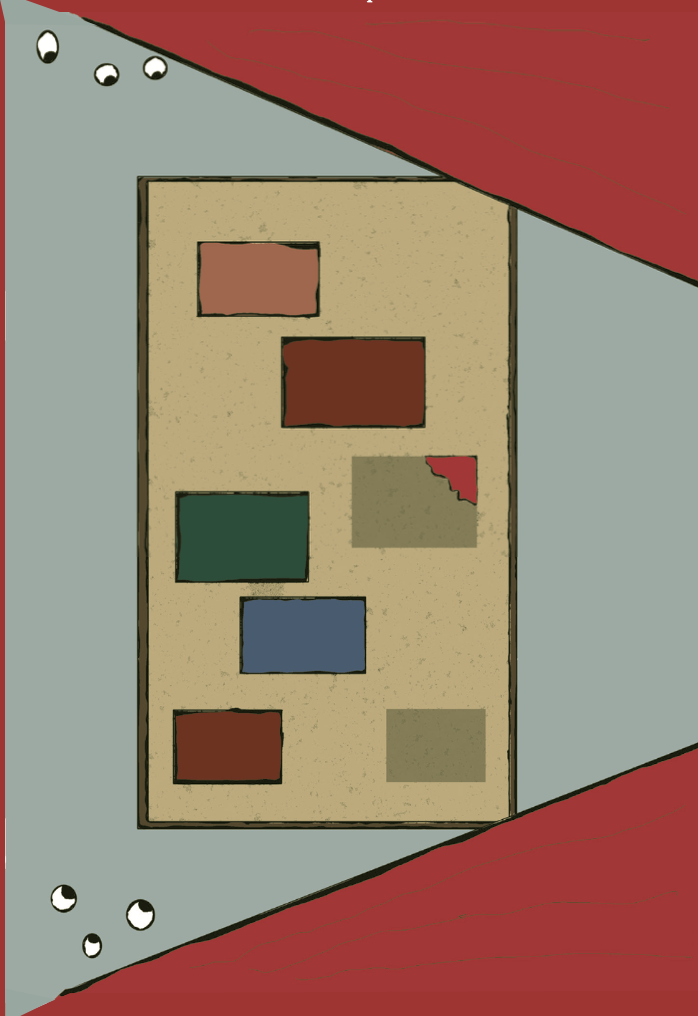In light of President Xi Jinping’s norm-defying third term in China, dissidents have spoken out against the seemingly unhampered bounds of his power, leading to increased censorship of Chinese nationals at home and abroad. Even in sleepy Wageningen, the Chinese Communist Party (CCP) possesses a quiet force that precludes students from engaging in meaningful discourse about China’s increasingly repressive political landscape.
In October, a man on a Beijing bridge carried out one of the most defying acts of political dissent in recent history, unfurling multiple banners, setting tires on fire, and chanting, “Go on strike at school and work, remove dictator and national traitor Xi Jinping! We want to eat, we want freedom, we want to vote!” In an instant, the unidentified protester—now known as “Bridge Man”—had elicited a flurry of attention on social media, as well as messages of solidarity from critics of the CCP globally. Although the Chinese government has been resolute in scrubbing the footage of Bridge Man’s act of defiance from digital archives, he has undoubtedly drawn on the rising frustrations surrounding Xi’s recent consolidation of power.
In response to Xi’s elevated status in the CCP, there have been sparks of dissent against his increasingly authoritarian leadership, especially among overseas students. From London to Montreal to New York, dissident students have reluctantly begun to express disdain over Xi’s rule despite threats of retaliation from the CCP itself – as well as from fellow students. Though many of these political actions have been relatively tame, taking the form of pro-democracy posters or messages of solidarity posted on social media, even such small-scale mobilization is not commonplace. In Wageningen, anti-Xi posters were hung on Orion, Forum, and Gaia bulletin boards with slogans like “Dictator Xi Jinping Out! #Notmypresident”. But within a day of their posting, they were mysteriously removed.
According to a post on the dissident Instagram account @northern_square, a pro-Xi student at WUR had threatened the person who put up the posters, promising that WUR’s administration would hold them accountable for their “hateful behaviour”, which “is seriously against the values of Wageningen University and also the value of Dutch government [sic]”. This pro-Xi student also alleged to have spoken with a university administrator who, according to them, ordered a staff member to retrieve video footage of the postering and to swiftly remove the posters. The student maintained that if the posterer’s identity is verified to be a PhD student or employee, the university would implement “more serious consequences.”
Vincent Koperdraat, Press Officer at WUR, quickly dismissed the false claims regarding the repression of Chinese pro-democracy campus speech. In a curt email, he wrote, simply, “The claims you mention are not true”.
Despite what ultimately turned out to be false allegations, the screenshots from @northern_square should give us pause, especially as China ramps up its efforts to surveil dissidents here in the Netherlands. At the very least, WUR should make efforts to cultivate and protect free expression, and specifically, they should publicly falsify these claims and do their best to ensure that threats like these do not circulate on social media again, especially regarding issues that very directly affect the lives of so many of its community members. As innocuous as these posters may have appeared to some, they spoke out against human rights abuses for people living under the CCPs rule. Students at WUR have the right to free speech and the right to put up posters on designated billboards, and the removal of these posters threatens this freedom. Instead, Koperdraat’s response illustrates an unabashed apathy towards the values that students hold dear and the speech that allows for their expression.
It is worth noting, however, that Koperdraat took no issue with expounding on his views further for Resource, in a comment that expressed sympathy for the security of students and concern over political polarization and free expression issues on campus. The disparity in thoughtfulness between his comments for Resource versus the student-run Jester suggests a difference in the accountability that WUR feels toward its reputation and its students.
In the same light, it is perhaps not a coincidence that WUR seems apathetic towards this poster event. According to its website, WUR has “close ties” with China, and has even had a Beijing office since 2009. WUR sees no problem in having such an intimate relationship with China, and chooses to primarily see it as a country with “astonishing transformation in its economic and geopolitical status” and one “from which developments we can learn a lot”. Additionally, engaging with Chinese partners affiliated with the Chinese armed forces, facial recognition programmes, or human rights violations is not automatically ruled out for WUR, as Resource reported last year. Instead, “the China-Platform and the WUR executive board assess whether, and if so, in what form, the research can go ahead as planned.”
We know now that WUR had no role in the removal of the posters and that allegations regarding the administration’s policing of Chinese pro-democracy sentiment were falsified. Regardless, it is worrying that the posters were removed so quickly and that the threats made to dissident students were able to circulate widely on social media. The university’s silence surrounding the threats – along with its nebulous policies regarding Chinese research partnerships – suggests that one voice is louder than another when it comes to debates on Chinese politics at WUR. The university’s actions, or lack thereof, give rise to an environment of fear, censorship, and self-censorship that dampens critical political discourse regarding Chinese politics before they can begin.

